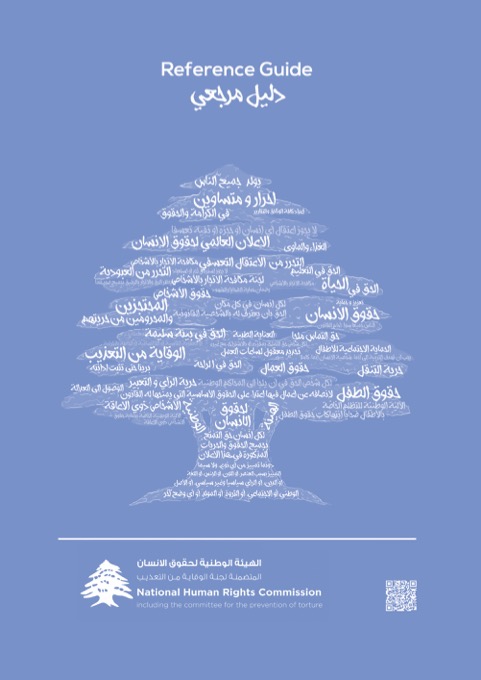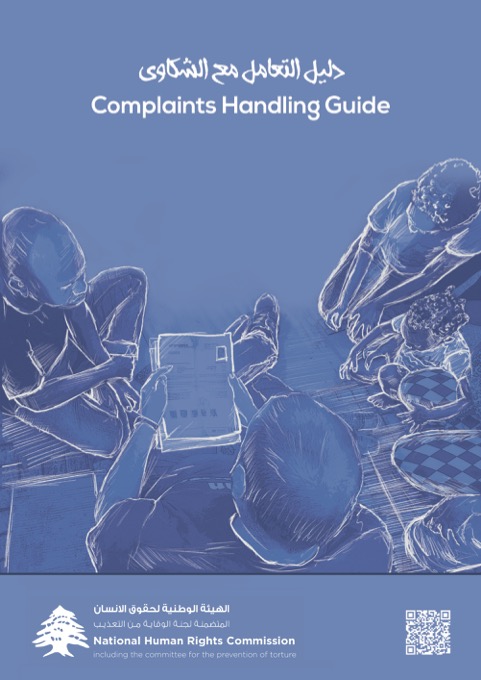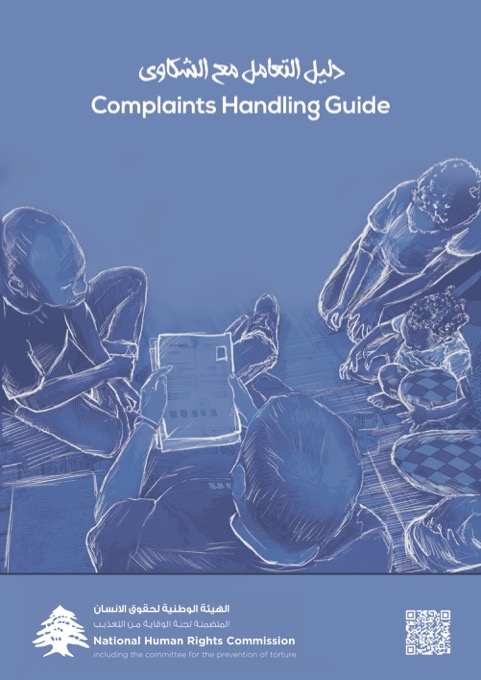هذه المقالة متاحة أيضًا بـ: العربية (Arabic)
Prepared by: Fadi Gerges, Bassam Al Kantar, Ali Youssef , Mervat Rishmawi, Karim El Mufti
ISBN: 978-9953-0-5687-6
First Edition: 2022
National human rights institutions are able to deal with complaints of human rights violations in a somewhat similar to, but different from, courts manner.
Complaint handling by National human rights institutions usually follows similar steps; including reception, initial assessment, investigation, conciliation, and referral or report.
Many National human rights institutions conduct investigations into human rights violations on their own.
Several National human rights institutions have responsibilities for handling a complaint. This function is “semi-judicial” i.e. similar to the function of the courts.
Courts receive and identify complaints, and issue binding orders that are enforceable by law. They work abiding by the judicial process. It is important to realize that National human rights institutions are not courts. They do not issue binding decisions for enforcement in general.
However, like courts, national institutions can receive complaints. They may ask for evidence and may also receive any proof that the parties to the complaint can provide.
Many National human rights institutions are required by law to attempt to resolve disputes through intervention and conciliation. If the dispute is not resolved, the national institutions can generally refer the complaint to the court for trial and final decision. Sometimes, the referral is accompanied by the findings of the National human rights institutions regarding facts and recommendations about their treatment.
In dealing with complaints, National human rights institutions are required to apply rules of normal justice ways or procedural justice. They may be human rights advocates but must be impartial in handling the complaint.
NHRCs play a vital role in addressing complaints of human rights violations. They are more accessible and more flexible than courts, which is especially important for people who may be poor, vulnerable or marginalized. For many, NHRCs may be the only option to secure justice.
According to Law 62 / 2016, the National Human Rights Commission in Lebanon has the Committee to follow up on the reality of human rights and international humanitarian law in Lebanon. This includes receiving, following up and handling complaints related to violations of any of the rights and freedoms guaranteed in the Lebanese constitution and in domestic laws and in accordance with Lebanon’s obligations under international human rights law and international humanitarian law.
The committee deals with protection-related roles and responsibilities, which constitute an important aspect of the responsibilities of national human rights institutions in accordance with the Paris Principles, by receiving and investigating complaints, negotiating and mediating, and seeking redress through the Public Prosecution Department or through the courts.
The Committee has established a Complaints Commission according to its internal system to facilitate the reception and follow-up of complaints received by the Commission. Three permanent committees (out of four) have also been established within the commission in addition to the Committee for the Prevention of Torture, which has the power to receive and handle complaints, namely:
- Grievance Committee for Child Victims of Child Rights Violations
- Committee for the Protection of the Rights of Persons with Disabilities
- Anti-Human Trafficking Committee
Moreover, the Committee for the Prevention of Torture can receive complaints during its visits to places of detention, and treat them according to the relevant section of this manual. However, the Committee for the Prevention of Torture does not receive, follow up and treat any complaints outside the framework of its visits to places of detention and places of deprivation of liberty.
This work is made available under the Creative Commons Attribution-NonCommercial-NoDerivatives 4.0 International (CC BY-NC-ND 4.0). No part of this publication may be reproduced, stored in a retrieval system, or transmitted in any form or by any means, electronic, mechanical, photocopying, recording or otherwise, for commercial purposes, without the prior written permission of the publisher.
Permissions: Requests for commercial use or further rights and licensing should be submitted to media@nhrclb.org
With the support of the project Promoting Community Policing in Lebanon, funded by the European Union and implemented by the International and Ibero-American Foundation for Administration and Public Policies – FIIAPP and CIVIPOL




